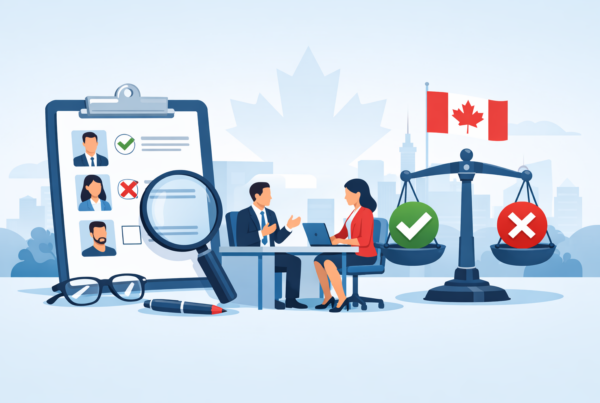The Executive’s Guide to Cognitive Flexibility: Mastering Adaptability for Success
In today’s rapidly changing business landscape, the ability to adapt and think creatively is more essential than ever before. The executive’s guide to cognitive flexibility, a critical executive skill, enables leaders to navigate the complexities of modern work environments, make informed decisions, and excel in their roles. But what is cognitive flexibility, and why is it so vital for success in executive positions? Let’s dive into cognitive flexibility and how it can help executives thrive in an increasingly dynamic and diverse workplace.
Key Takeaways
- Cognitive flexibility is an essential executive skill for workplace success and effective leadership.
- Executives can develop cognitive flexibility by embracing new experiences, cultivating empathy, and engaging in mindful practices.
- Cognitive flexibility will be increasingly important to navigate technological advancements, globalization & diversity while fostering lifelong learning & skill development.
Understanding Cognitive Flexibility: A Key Executive Skill

Cognitive flexibility is a critical skill and a key executive skill, crucial for adapting to changing situations, problem-solving, and decision-making – all of which are necessary for workplace success. It is a component of executive functions, which include self-control, organization, and flexible thinking. Developing cognitive flexibility skills can greatly enhance one’s overall executive function skills.
Cognitive flexibility allows individuals to suppress irrelevant or inappropriate responses in favour of more adaptive ones, a process known as response inhibition.
Definition and Components
Cognitive flexibility is the capacity to adjust one’s thoughts and behaviours in reaction to varying circumstances, which is a part of executive function and closely related to cognitive development. It encompasses working memory, task switching, and inhibitory control. Brain development plays a crucial role in shaping cognitive flexibility, with specific nodes in the frontal and parietal cortices, insula, and anterior cingulate cortices involved in this process, all contributing to optimal brain function.
Working memory load is an important factor influencing cognitive flexibility, determining the amount of information that can be actively maintained and manipulated during complex cognitive tasks. Inhibition and working memory are integral to achieving successful cognitive flexibility, allowing individuals to focus on relevant information and suppress distractions.
A deeper grasp of cognitive flexibility’s components allows a more profound understanding of its workplace significance and the impact on executive performance.
Importance in the Workplace
In the workplace, cognitive flexibility is vital for adapting to change, managing diverse teams, and navigating complex situations. It enables individuals to modify their behaviour in response to changing conditions, allowing them to approach challenging scenarios with a more open and adaptable perspective. Embracing cognitive flexibility allows executives to enhance their problem-solving abilities, manage diverse teams more efficiently, and sustain workplace well-being.
Examples of cognitive flexibility in the workplace include:
- Adapting to alterations in project requirements or objectives
- Effectively transitioning between different tasks or projects
- Utilizing new technologies or tools to optimize work processes
- Working collaboratively with varied teams
- Adjusting communication styles accordingly
- Being receptive to feedback and modifying strategies based on input from colleagues or customers
Cognitive flexibility is indispensable for workplace success and effective leadership.
Developing Cognitive Flexibility: Strategies for Executives

To excel in today’s intricate and rapidly evolving business landscape, it’s crucial for executives to cultivate cognitive flexibility. Embracing novel experiences, demonstrating empathy, and engaging in mindful and self-regulatory practices are essential for cultivating cognitive flexibility.
Adopting these strategies equips executives with the necessary skills to navigate the modern workplace’s challenges and opportunities.
Embracing New Experiences
The concept of embracing new experiences involves attempting new tasks or acquiring new skills, which can assist executives in becoming more adaptable and open-minded. Through self-challenging with new tasks or skills, individuals can enhance their flexibility, stimulate creative thinking, and adapt to unfamiliar circumstances. Furthermore, new experiences can lead to personal development, broadened networks, augmented job satisfaction, and unanticipated opportunities.
Executives should consider embracing new experiences such as:
- taking on leadership roles in sports teams or social groups
- participating in internships or volunteering opportunities
- joining student clubs or organizations
- networking with individuals from diverse backgrounds
- embracing challenges and learning opportunities in their current positions
Mastering new skills can improve problem-solving abilities and bolster self-assurance, contributing to adaptability and open-mindedness.
Cultivating Empathy
Empathy is the ability to understand and share the feelings of others, which is crucial for effective communication, collaboration, and problem-solving. Cultivating empathy can augment cognitive flexibility by improving relations between coworkers, cultivating adaptability and resilience, and encouraging perspective-taking and comprehension of others.
Comprehending the perspectives of others improves cognitive flexibility by allowing individuals to confront issues from diverse angles, contemplate multiple outlooks, and devise imaginative solutions. Obtaining knowledge through multiple perspectives increases cognitive flexibility, and being open to different perspectives helps cultivate empathy and comprehension toward others. Various exercises, such as those mentioned in the Harvard Business Review article titled ’10 Empathy Exercises,’ can be employed to cultivate empathy skills for leaders.
Practicing Mindfulness and Self-Regulation
Mindfulness and self-regulation are practices characterized by being aware of one’s thoughts, emotions, and reactions and being able to control them to respond to varying scenarios and environments. The practice of mindfulness and self-regulation has a beneficial effect on cognitive flexibility by improving:
- Self-control
- Objectivity
- Affect tolerance
- Concentration
- Mental clarity
Mindfulness exercises can help executives become more cognizant of their thoughts, emotions, and reactions and better manage stress and focus. By applying mindfulness and self-regulation practices, executives can integrate attentional/cognitive control, emotion regulation, and self-related processes, thus leading to an increased level of flexibility and equanimity.
In an ever-evolving business landscape, the ability to adapt is not just an asset—it’s a necessity. Cognitive flexibility, which allows leaders to pivot with poise and think innovatively, is critical for success in any executive role. While the concept may be clear, the application requires nuanced expertise.
This is your opportunity to go beyond understanding—to mastering adaptability. Partner with a coach who can guide you in refining this skill, helping you to lead confidently through change and diversity.
Take the step that separates good leaders from great ones. Contact an executive coach today and unlock the potential of your cognitive flexibility. Your journey to exceptional leadership starts here.
Cognitive Flexibility and Leadership Effectiveness

Cognitive flexibility is a cornerstone of effective leadership, empowering executives to adapt to change, make informed decisions, and construct resilient teams. Cognitive flexibility has been shown to have many advantages throughout the lifespan. For example, improved reading abilities among children increased resilience towards negative life events and stress for adults, as well as higher creativity and overall quality of life in older individuals.
Adapting to Change
Adapting to change requires cognitive flexibility to navigate new situations, implement new strategies, and manage uncertainty. Executives must be able to adjust their thoughts and behaviours rapidly in response to altering environmental demands. Lifelong learning and skill development are of great importance for cognitive flexibility, as they preserve mental acuity and receptivity to novel concepts.
Embracing novel experiences, fostering empathy, and applying mindfulness and self-regulation can assist in maintaining concentration and managing stress. Improving cognitive flexibility enables employees to bolster their problem-solving skills, decision-making abilities, and overall workplace adaptability.
Problem Solving and Decision-Making
Cognitive flexibility, a key aspect of fluid intelligence, is paramount in strategic decision-making. It enables individuals to adjust to uncertain and intricate circumstances, value different perspectives, and incorporate them into their decision-making process. It facilitates innovative problem-solving by promoting creativity, adaptability, and the capacity to think unconventionally.
Executives with a high degree of cognitive flexibility are capable of considering the situation, valuing different perspectives, and incorporating them into their decision-making process. By embracing various ideas and strategies, cognitive flexibility fosters a culture of inclusivity where every individual is appreciated and esteemed.
Building Resilient Teams
Building resilient teams requires leaders with cognitive flexibility to support diverse team members, manage conflicts, and foster a positive work environment. Cognitive flexibility enables teams to recover from difficult situations and manage challenges proficiently. It also facilitates the regulation of emotions and the maintenance of effective communication and collaboration.
Embracing cognitive flexibility permits executives to cultivate an inclusive work environment. Here, team members can:
- Welcome diverse perspectives and ideas
- Heighten problem-solving abilities
- Enhance creativity
- Foster workplace innovation
Assessing and Enhancing Cognitive Flexibility in the Workplace

Various tools, techniques, and interventions can be leveraged to assess and enhance workplace cognitive flexibility. Utilizing assessment tools and techniques, such as cognitive tests and self-assessments, can help executives identify areas for improvement and track progress. In this process, clinical considerations should be considered to ensure the most effective approach is employed.
Training programs and interventions, such as workshops, coaching, and online courses, can help executives develop and enhance cognitive flexibility.
Assessment Tools and Techniques
Cognitive tests and self-assessments are assessment tools and techniques that can assist executives in recognizing areas for improvement and monitoring progress. Examples of cognitive tests that effectively assess cognitive flexibility include:
- Wisconsin Card Sorting Test (WCST)
- Trail-Making Test Part B (TMT-B)
- Verbal Fluency Test (VFT)
- A-not-B task
- Dimensional Change Card Sorting Task
- Multiple Classification Card Sorting Task
Self-assessment methods for measuring cognitive flexibility include the disexecutive questionnaire (DEX) and the Cognitive Flexibility Inventory (CFI). These measures assess aspects of cognitive flexibility in everyday settings and can help executives identify areas where they may need to focus on improvement.
Training Programs and Interventions
Training programs and interventions for cognitive flexibility are activities and courses designed to assist executives in developing and improving their cognitive flexibility. These may include workshops, coaching, and online courses. Workshops designed to foster the development of cognitive flexibility in participants may incorporate strategies such as metacognitive training, encouraging flexible thinking, and facilitating the transfer of learning.
Executive coaching can contribute to the enhancement of cognitive flexibility by:
- Encouraging professionals to embrace novel experiences and challenges outside of their comfort zone
- Providing guidance and support in implementing cognitive flexibility
- Fostering leadership development
- Offering a systematic approach to augmenting flexibility
Participation in training programs and interventions enables executives to cultivate cognitive flexibility, enhance their problem-solving capabilities, and increase workplace adaptability.
The Future of Cognitive Flexibility in Executive Roles

Technological advancements, globalization, and the need for lifelong learning and skill development will influence the future of cognitive flexibility in executive roles. As the work environment becomes more unpredictable and dynamic, those capable of swiftly altering their strategies and approaches to new scenarios will be better equipped to manage transformation and achieve success.
Technological Advancements
Technological advancements, such as:
- AI
- machine learning
- robotics
- heightened digital access
Are transforming the contemporary workplace and stimulating improved decision-making. These advancements will require executives to adapt to new tools, systems, and working methods, necessitating cognitive flexibility.
However, technology may also result in information overload and continuous distractions, potentially hindering cognitive flexibility. Therefore, executives need to strike a balance where technology is utilized to enhance, not impede, their cognitive flexibility.
Globalization and Diversity
Globalization and diversity demand cognitive flexibility to manage multicultural teams, navigate cultural differences, and foster inclusive work environments. Executives must be able to navigate the global business landscape, which involves exposure to different cultures, markets, and perspectives.
Embracing cognitive flexibility allows executives to enhance their problem-solving abilities, manage diverse teams more efficiently, and sustain workplace well-being. Fostering a culture of inclusivity where every individual is appreciated and esteemed, cognitive flexibility will continue to play a pivotal role in the success of executives in an increasingly globalized and diverse business environment.
Lifelong Learning and Skill Development

To stay competitive and adapt to the ever-evolving role demands, executives must engage in lifelong learning and skill development, both necessitating cognitive flexibility. Engaging in continuous learning, acquiring new skills, and discovering new information are all instrumental in fostering cognitive flexibility.
Continuous skill development has been found to facilitate the brain’s capacity to modify and transition between tasks, perspectives, and problem-solving approaches, thus resulting in augmented cognitive flexibility. By investing in lifelong learning and skill development, executives can ensure they remain at the forefront of their industries and continue to excel in their roles.
Summary
In conclusion, cognitive flexibility is a vital executive skill that enables leaders to navigate the complexities of modern work environments, make informed decisions, and excel in their roles. By embracing novel experiences, cultivating empathy, practicing mindfulness, and engaging in lifelong learning and skill development, executives can develop and enhance their cognitive flexibility to meet the challenges and opportunities of an increasingly dynamic and diverse workplace.
As the future of work continues to evolve, with technological advancements, globalization, and the need for lifelong learning and skill development shaping the demands of executive roles, cognitive flexibility will remain a critical skill for success. By investing in the development of cognitive flexibility, executives can ensure they are well equipped to lead their teams and organizations through the ever-changing landscape of the modern business world.
Frequently Asked Questions
What is cognitive flexibility in executive function?
Cognitive flexibility is an essential aspect of executive functions, allowing individuals to regulate their thoughts and actions adaptively. It involves the capacity to shift between different tasks or goals.
What are 4 strategies to improve cognitive flexibility?
Four strategies to improve cognitive flexibility are engaging in novel and complex tasks, using spaced repetition to strengthen memory, practicing mindfulness and meditation, and challenging rigid thought patterns.
What are the 7 executive functions of the brain?
Executive functions of the brain include adaptable thinking, planning, self-monitoring, self-control, working memory, time management, and organization.
What is the importance of cognitive flexibility in the workplace?
Cognitive flexibility is vital in the workplace for successful adaptation to change, efficient management of diverse teams, and efficient navigation of complex situations.
What next?
As you reflect on the essence of cognitive flexibility and its indelible impact on your path as an executive, you may find yourself inspired to harness this transformative skill further. It’s one thing to understand the pivotal role cognitive flexibility plays in your ability to adapt, innovate, and lead with understanding; it’s another to embody this agility and make it a cornerstone of your professional ethos.
Imagine an environment where each challenge becomes a stepping stone to greatness, where the complexities of the modern marketplace are not roadblocks but invitations to think differently. This is the world you can thrive in with enhanced cognitive flexibility—a world where your capacity to navigate change and diversity is limitless.
But understanding the importance of cognitive flexibility is just the first step. To truly master the art of adaptability, guidance and perspective from those who have walked this path can be invaluable. This is where the role of a seasoned coach comes to the fore—offering a partnership that illuminates your strengths, targets areas for growth and supports you in unlocking the full potential of your cognitive prowess.
Seize this opportunity to transform not just your mindset but your professional journey. Reach out today to a coach who can facilitate this evolution. Together, you will explore the uncharted territories of your leadership capabilities and cultivate a nimble mind, ready to excel amid the unpredictable tides of the business world.
Let this call to action not merely be words that resonate but an initiation of your transformative journey. Contact a coach specializing in executive development, and take a definitive step towards mastering the art of cognitive flexibility—for your success, your team’s growth, and the innovative legacy you are destined to create.
Embark on this journey to mastery. Reach out now—because the future belongs to those who can adapt gracefully and lead with vision.



